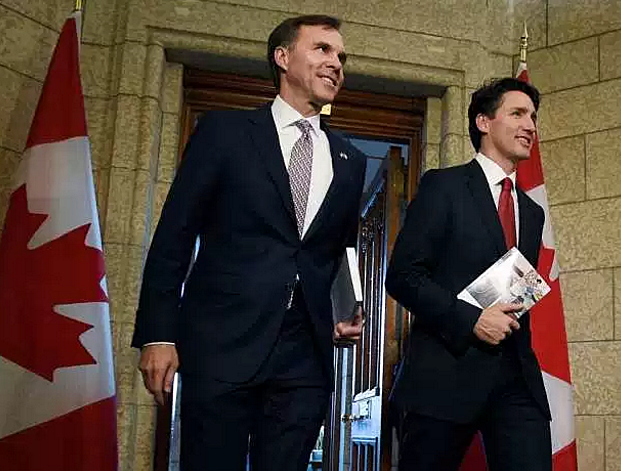There had been widespread speculation that a change in capital gains taxation would be imposed to curb real estate speculation, while keeping the exemption from capital gains tax for those selling their primary residence.
It had even been mooted that there might be a national foreign buyer tax introduced, like the one that Metro Vancouver has had in place since August 2016.
But there was not a whiff of any new real estate taxation in this week’s Budget. Having recently intervened in the national housing market, with its strict new mortgage qualification rules, the federal government now seems content to leave free-market forces to do what they will, and let provincial and municipal governments make their own decisions about what works best for their regional markets.
In the meantime, the feds are focusing their efforts on providing funds for affordable housing across Canada for those who need it most – low-income residents and families, the homeless, northern communities and First Nations groups, among others. They’ve promised $11.2 billion over the next five years, with $5 billion of that to go to the new National Housing Fund to create affordable units across Canada, and $3.2 billion to be spread between provincial governments to support affordable housing.
All of which has been criticized as not being new money, as it was outlined in the government’s fall economic outlook and much of it even referred to in last year’s budget. But it’s all good, much-needed funding for social housing that is long overdue.
But providing affordable housing – that is, social housing – is a completely different thing than trying to make homes affordable for regular, middle-class Canadians navigating the various real estate markets. On that front, the feds are clearly sitting on their hands while they collect data on home ownership across the country over the next five years or more.
The Budget document tells us, “In recent years, Canada has grappled with difficult questions about housing affordability and foreign ownership – questions that could not be answered… Budget 2017 proposes to provide $241 million over the next 11 years to CMHC to improve data collection and analytics, which will strengthen the ability to report the outcomes of the National Housing Strategy and make informed policy decisions... To address gaps in current nationwide housing data, Budget 2017 also proposes to provide [an additional] $39.9 million over five years, and $6.6 million per year thereafter, to Statistics Canada to develop and implement a new Housing Statistics Framework. [This] will be a nationwide database of all properties in Canada, and provide up-to-date information on purchases and sales, including the degree of foreign ownership.”
The above spending is the only measure in Budget 2017 to address the Canadian real estate market – which is somewhat eyebrow-raising, considering the continued furore over affordability of homes for those Canadians who do not qualify for social housing, which is most of us. And commentators are already suggesting that even that data-collection policy is merely a placating measure so that it looks like the Liberals are at least doing something about the situation.
Indeed, most of the criticism directed so far towards the Budget’s housing policies has been about the feds’ lack of attempt to cool Canada’s hottest, least-affordable real estate markets.
But the problem with a federal government trying to intervene on a national level is that if they apply a blanket policy, as with the recent mortgage qualification stress test, it applies to all housing markets – from scorching ones like Vancouver and Toronto, to depressed ones like Alberta and some Eastern and Northern markets, and everything in between. And no national housing policy can simultaneously cool real estate in some regions while stimulating it in others.
Hopefully, the lack of intervention in the 2017 Budget is a sign that the feds are finally being smart enough to recognize that there is no one-size-fits-all measure that works for all our diverse, delicate Canadian housing markets.
No, it’s up to provincial and municipal governments to get that right.

